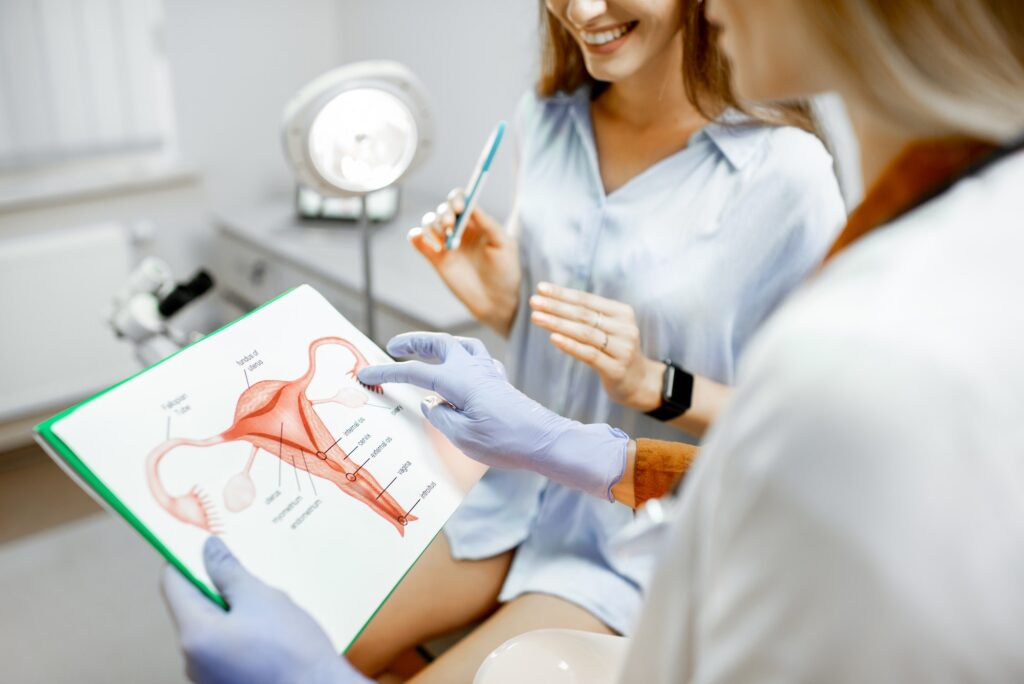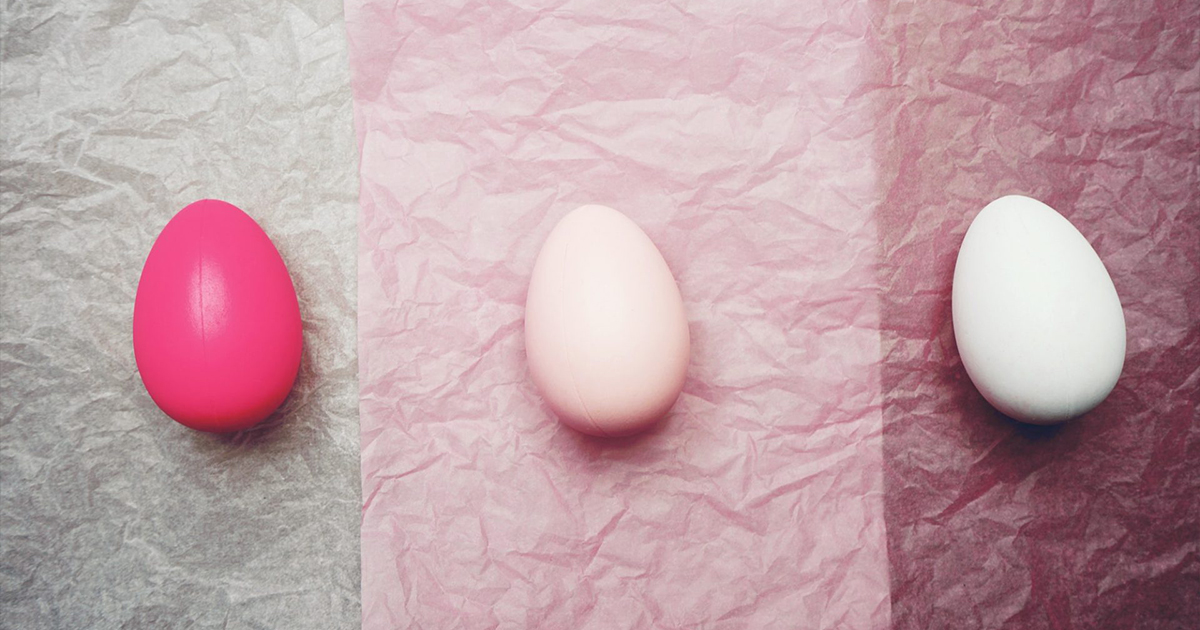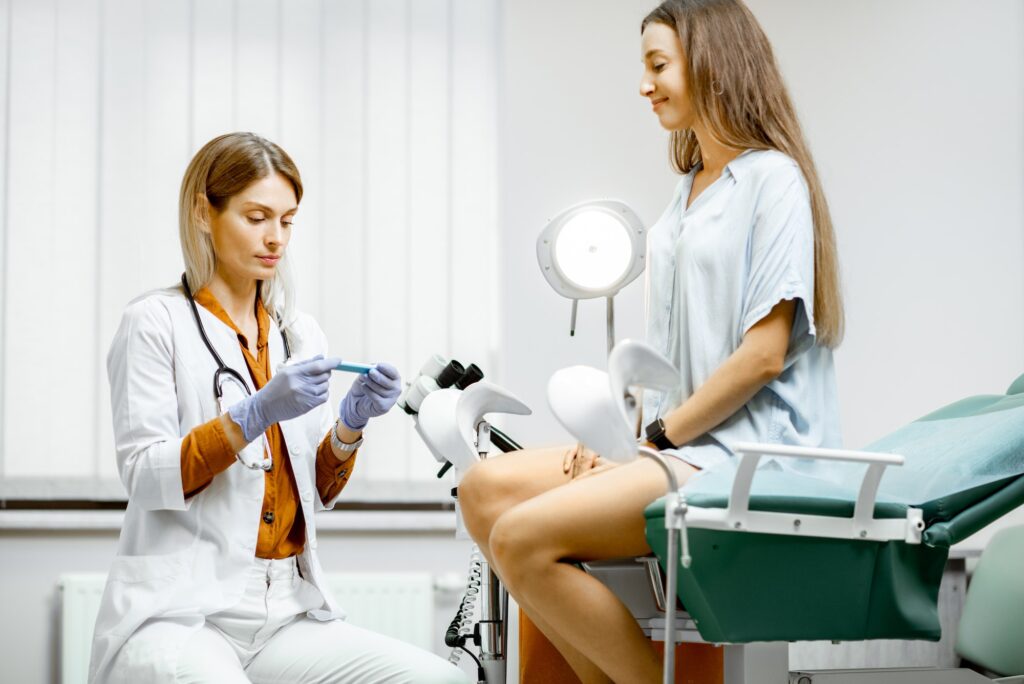There are many valid reasons for delaying having children. Focusing on your career, not having the financial means to take care of a child yet, or not being emotionally ready to have children are some of them. Whatever the reason, only you can determine the right time to start a family. Your biological clock, however, refers to the decline in the number of your eggs as you age. Egg freezing is a way for those who want to bridge the gap between your biological clock and your life plans.
With our egg freezing program, you can have the chance to start a family when you are ready. Moreover, you can create a reliable backup plan for any infertility issues you may encounter. With the egg freezing technologies we offer, you now have the final say against your biological clock.
Is Egg Freezing the Right Option for Me?
In general, egg freezing is recommended in the following situations:
- Those who want to preserve their fertility for the future
- Women between the ages of 25 and 37
- Those who are not yet ready to have children
- Those with a family history of early menopause
- Those undergoing medical treatments like chemotherapy
- Those who want to delay having another child
- Those who want to overcome complications related to chemotherapy and radiotherapy
- Those with medical issues such as ovarian cysts

Age and Fertility
Female fertility begins to decline in the late twenties. Along with this decline, the continuous loss of eggs leads to increased rates of miscarriage, chromosomal (genetic) abnormalities, and infertility (especially in women over 35). Egg freezing gives women the opportunity to use “younger” eggs when they decide they want to conceive. This allows women to avoid problems caused by aging.
This is why the earlier you freeze your eggs, the better. Younger eggs increase the chances of a successful pregnancy, regardless of when you decide to use them.
- The ideal age for egg freezing is between 25 and 37, when ovarian reserve is at its highest.
- Your ovaries age with you, and the number of available eggs decreases.
- Your uterus can remain healthy and supportive of pregnancy until around the age of 50.
- By freezing your eggs, you fix your chances of successful pregnancy at the age when they were collected: for example, if you freeze your eggs at 28 and use them at 39, your success rate is the same as it was when you were 28.
- Egg freezing is still an option after 37, but you may need multiple IVF cycles to obtain the recommended number of eggs.
Egg Freezing: The Relationship Between Age and Fertility
Female fertility and egg quantity and quality begin to decrease around the age of 30. After 35, this decline becomes more significant. Therefore, freezing your youngest eggs is highly beneficial.
At birth, you have approximately 4 million eggs. By the time you reach puberty, this number drops to 400,000, and you lose about 1,000 eggs with each menstrual cycle. By the age of 30, women have less than 100,000 eggs remaining. In the mid-forties, this number is almost zero.
As a woman approaches menopause (around age 45), there are almost no healthy follicles (the sacs that produce eggs) remaining. Even if follicles remain, eggs generally do not reach full maturity due to natural hormonal changes affecting development.
The younger you are when you freeze your eggs, the higher your chances of a successful pregnancy in the future. The success rate of IVF with frozen eggs depends on when the eggs were collected, not when they are used.
Therefore, if you freeze your eggs at 30 and use them at 40, essentially, you stop the clock and your success rate is the same as it was at 30. Generally, we do not recommend egg freezing after 40.
How Does the Egg Freezing Process Work?
The entire egg freezing cycle takes about two weeks. During this time, you can continue with your normal activities. Most women can maintain their usual routine, whether it’s work, exercise, or other activities, with just minor changes such as taking light medications and attending a few examination visits. The egg retrieval process usually lasts about 20 minutes, and you can return to work the next day.
During the two-week egg freezing process, you will need to visit the clinic 3 to 5 times to track your progress and determine the optimal time to collect the eggs.
How Long Can I Keep My Eggs Frozen?
There is no limit to how long your eggs can remain frozen. Eggs can be frozen today and remain frozen and stable without losing quality over time. After thawing, the eggs have the same success chance as they would with a new IVF cycle.
We recommend that our patients first try to conceive naturally and, if unsuccessful, consider egg freezing. In fact, many choose to freeze their eggs for a second or third child.
In summary, egg freezing can be considered a wonderful “backup plan”.
Information About Egg Freezing
The egg collection process involves minimal discomfort. The procedure lasts about 20 minutes and is done under light anesthesia. You can return to work the next day.
Frequently Asked Questions About Egg Freezing

Is Egg Freezing Beneficial for Women Undergoing Cancer Treatment?
Women with cancer who are undergoing chemotherapy or radiation treatments may face the possibility of ovarian damage and might prefer rapid freezing programs. These programs work as the name suggests: as soon as your next menstrual cycle begins, the two-week egg freezing process can begin.
Is There an Ideal Age for Egg Freezing?
What you should keep in mind when planning your family is that the younger you are when you freeze your eggs, the higher your chances of having a healthy child. In other words, the health of your baby reflects the age at which your eggs were frozen. Therefore, we recommend freezing your eggs between the ages of 35 and 37.
Egg freezing is possible after the age of 37, but the process may take longer. Since the quantity and quality of your eggs decrease rapidly after the age of 35, multiple cycles may be needed to collect enough mature, healthy eggs.
How Can I Successfully Get Pregnant with Frozen Eggs?

The chances of getting pregnant with frozen eggs are generally the same as with fresh (non-frozen) eggs and IVF. Age is always a factor in potential fertility success, but if you freeze your eggs at 25 and decide to use them at 37, your chances of success will be the same as they were at 25 (provided that the facility and staff that stored your eggs are top-notch).
How Many Eggs Should Be Frozen?
We generally recommend freezing about 20 mature eggs for the possibility of having multiple children and undergoing multiple pregnancy attempts. Since not every egg results in pregnancy, it is crucial to freeze a sufficient number of eggs.
Will All My Eggs Be Used at Once?
The process of using or thawing frozen eggs is called the egg thaw cycle. To obtain the healthiest, strongest embryo, we typically thaw 6 to 8 eggs at once. Depending on how many of these eggs are successfully fertilized, you may attempt multiple pregnancies with each batch.
How Do I Choose Where to Freeze My Eggs?
A fertility center’s experience with egg freezing affects your chances in the future. Ideally, eggs frozen at a center should have a 90% chance of being viable after thawing.
How Long Does the Entire Freezing Process Take?
From the first day of your menstrual cycle, the egg freezing cycle lasts two weeks. During the process, you can continue with your normal routine; you will only need to take light medication and visit the clinic 3 to 5 times for follow-up. The egg retrieval process is the only day that may disrupt your routine. It lasts about 20 minutes, and you can return to work the next day.
Can I Freeze My Eggs After 40?
To maximize the chances of future pregnancy success, we strongly recommend undergoing egg freezing at the earliest possible age. Unfortunately, this means we do not recommend freezing eggs after the age of 40.
To learn more about IVF and women’s health, please visit our blog. Click here to visit our blog.

 EN
EN TR
TR
